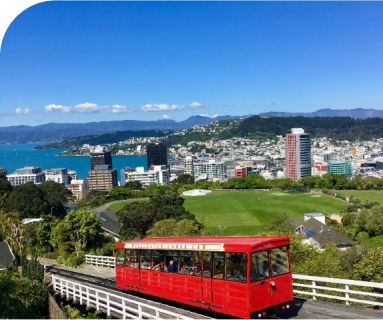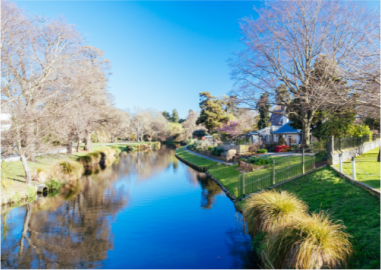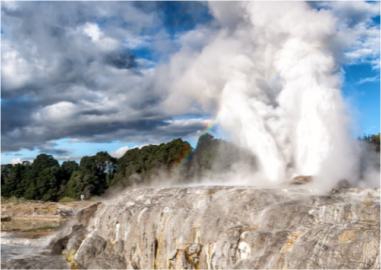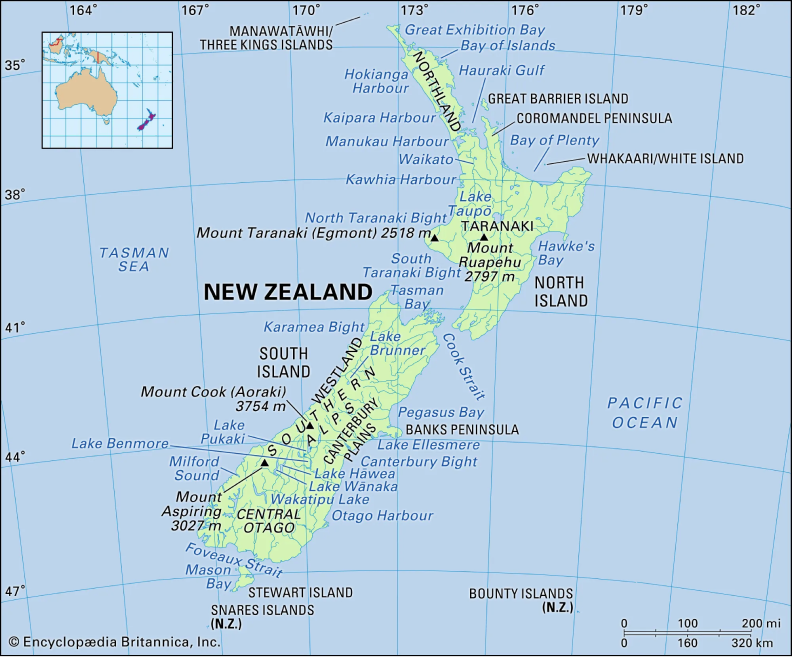LAST DAY! ⏳ Secure top scores and your uni dream. 💡Only Rp 90,000 for 40 minutes. Offer ends MIDNIGHT!
LAST DAY! ⏳ Secure top scores and your uni dream.
💡Only Rp 90,000/hour TODAY. Offer ends MIDNIGHT!
LAST DAY! ⏳ Secure top scores and your uni dream. 💡Only Rp 90,000 for 40 minutes. Offer ends MIDNIGHT!
LAST DAY! ⏳ Secure top scores and your uni dream.
💡Only Rp 90,000/hour TODAY. Offer ends MIDNIGHT!

Acknowledged Universities

Outstanding Education

Standard of Living

Safe and Peaceful

Work Opportunities




Here are some of the reasons why studying in New Zealand is a good idea:
New Zealand is an ideal choice for students looking for a top-notch education in a secure and breathtakingly beautiful setting.
The cost of living in New Zealand can vary based on the city and lifestyle, but it is generally seen as moderate. Typically, international students should budget around 20,000 NZD to 25,000 NZD per year to cover various living expenses such as accommodation, food, transport, and entertainment. Larger urban areas such as Auckland and Wellington generally come with a higher cost of living in comparison to smaller towns.
Tuition Fee for International Students:

To apply for a student visa in New Zealand, you’ll need to provide a letter of acceptance from a recognized educational institution, proof of sufficient funds to cover tuition and living expenses, a valid passport, and evidence of your intent to leave the country upon completing your studies. Additionally, applicants may be required to demonstrate proficiency in English, often through exams like IELTS.
Health insurance coverage is typically mandatory. It’s crucial to check the specific requirements on the Immigration New Zealand website or consult with the nearest New Zealand embassy or consulate to ensure accurate and up-to-date information tailored to your situation.
Student visa New Zealand requirements
Note: These visas come with specific requirements and conditions that you need to consider. They cover aspects such as the duration of study, the type of institution you choose, and the level of study you plan to pursue. When planning your academic journey in New Zealand, it’s crucial to carefully evaluate the visa options that align with your goals.
To apply for a student visa to study in New Zealand, you’ll need the following:
Public Healthcare System
The public health system is funded through general taxation and overseen by regional agencies called District Health Boards. This system offers a diverse array of medical services to cater to the needs of all residents in the country. New Zealand’s public healthcare system is widely recognised for its exceptional standard of care. Unfortunately, patients frequently experience lengthy wait times for elective or non-emergency procedures.
Private Healthcare System
One of the key benefits of having private health insurance is the ability to receive prompt treatment and avoid long waiting lists. This is especially valid for elective surgeries and procedures that are not considered urgent. If you’re looking to receive prompt diagnosis and treatment for more serious illnesses, having private health insurance can greatly impact your ability to access the necessary care.





• University of Auckland
• University of Canterbury
• Auckland University of Technology

• Auckland University of Technology
• Lincoln University
• The University of Auckland

• Massey University
• Lincoln University
• University of Otago

• The University of Auckland
• University of Otago
• Victoria University of Wellington
• The University of Auckland
• University of Otago
• Massey University
| Accommodation expenses in New Zealand for international students | Expenses (approx) |
|---|---|
| Accommodation on Campus | 400 NZD - 2,800 NZD per month |
| Homestay | 440 NZD - 1,480 NZD per month |
| Private Accommodation | Around 1,250 NZD per month |









To kickstart your career in New Zealand and discover captivating job prospects, pursuing a degree in a relevant field is the smartest move.
New Zealand offers numerous opportunities for international students who are eager to start their professional journey. If you want to explore these career opportunities, you can consider referring to the skills shortage list on the NZ immigration website. Seek out positions that capture your interest and are in line with your skills. In fact, even if your desired profession is not included in the stated options, you can still make use of the three-year post-study visa to pursue job opportunities in your chosen field. New Zealand consistently prioritises nurturing talent, empowering young professionals to achieve remarkable accomplishments, and warmly embracing graduates from around the globe into its workforce.

New Zealand is a captivating island nation, situated among the stunning islands that form the enchanting region of Oceania. Located in the South Pacific Ocean, to the southeast of Australia and south of New Caledonia, Fiji, and Tonga Islands. New Zealand’s geographical location offers a strategic advantage, being situated in both the Southern and Eastern hemispheres of the Earth. The island country is surrounded by the expansive Pacific Ocean. New Zealand shares maritime borders with neighbouring countries such as Australia, Tonga, Fiji, and other island nations in the Oceania region.
New Zealand is made up of two main islands, the North Island and the South Island, along with approximately 600 smaller islands, spanning a total area of 268,021 sq.km. Wellington, situated at the extreme southwestern point of North Island, is the capital and the second largest city of New Zealand. This city holds the distinction of being the southernmost capital in the world and serves as a significant hub for culture, economy, and commerce within the country. Wellington harbour plays a crucial role as a key port, serving as the central hub for trade, transportation, and communication in the country. Auckland, situated in the northern part of North Island, is the largest and most populous city in New Zealand. Additionally, it serves as the nation’s primary centre of commerce and the main maritime gateway.
Do’s
Don’ts

Acknowledged Universities

Outstanding Education

Standard of Living

Safe and Peaceful

Work Opportunities




Here are some of the reasons why studying in New Zealand is a good idea:
New Zealand is an ideal choice for students looking for a top-notch education in a secure and breathtakingly beautiful setting.
The cost of living in New Zealand can vary based on the city and lifestyle, but it is generally seen as moderate. Typically, international students should budget around 20,000 NZD to 25,000 NZD per year to cover various living expenses such as accommodation, food, transport, and entertainment. Larger urban areas such as Auckland and Wellington generally come with a higher cost of living in comparison to smaller towns.
Tuition Fee for International Students:

To apply for a student visa in New Zealand, you’ll need to provide a letter of acceptance from a recognized educational institution, proof of sufficient funds to cover tuition and living expenses, a valid passport, and evidence of your intent to leave the country upon completing your studies. Additionally, applicants may be required to demonstrate proficiency in English, often through exams like IELTS.
Health insurance coverage is typically mandatory. It’s crucial to check the specific requirements on the Immigration New Zealand website or consult with the nearest New Zealand embassy or consulate to ensure accurate and up-to-date information tailored to your situation.
Student visa New Zealand requirements
Note: These visas come with specific requirements and conditions that you need to consider. They cover aspects such as the duration of study, the type of institution you choose, and the level of study you plan to pursue. When planning your academic journey in New Zealand, it’s crucial to carefully evaluate the visa options that align with your goals.
To apply for a student visa to study in New Zealand, you’ll need the following:

• University of Auckland
• University of Canterbury
• Auckland University of Technology

• Auckland University of Technology
• Lincoln University
• The University of Auckland

• Massey University
• Lincoln University
• University of Otago

• The University of Auckland
• University of Otago
• Victoria University of Wellington
• The University of Auckland
• University of Otago
• Massey University
| Accommodation expenses in New Zealand for international students | Expenses (approx) |
|---|---|
| Accommodation on Campus | 400 NZD – 2,800 NZD per month |
| Homestay | 440 NZD – 1,480 NZD per month |
| Private Accommodation | Around 1,250 NZD per month |

Register With Gold Star Education And Talk With Our Expert Counsellor








To kickstart your career in New Zealand and discover captivating job prospects, pursuing a degree in a relevant field is the smartest move.
New Zealand offers numerous opportunities for international students who are eager to start their professional journey. If you want to explore these career opportunities, you can consider referring to the skills shortage list on the NZ immigration website. Seek out positions that capture your interest and are in line with your skills. In fact, even if your desired profession is not included in the stated options, you can still make use of the three-year post-study visa to pursue job opportunities in your chosen field. New Zealand consistently prioritises nurturing talent, empowering young professionals to achieve remarkable accomplishments, and warmly embracing graduates from around the globe into its workforce.

New Zealand is a captivating island nation, situated among the stunning islands that form the enchanting region of Oceania. Located in the South Pacific Ocean, to the southeast of Australia and south of New Caledonia, Fiji, and Tonga Islands. New Zealand’s geographical location offers a strategic advantage, being situated in both the Southern and Eastern hemispheres of the Earth. The island country is surrounded by the expansive Pacific Ocean. New Zealand shares maritime borders with neighbouring countries such as Australia, Tonga, Fiji, and other island nations in the Oceania region.
New Zealand is made up of two main islands, the North Island and the South Island, along with approximately 600 smaller islands, spanning a total area of 268,021 sq.km. Wellington, situated at the extreme southwestern point of North Island, is the capital and the second largest city of New Zealand. This city holds the distinction of being the southernmost capital in the world and serves as a significant hub for culture, economy, and commerce within the country. Wellington harbour plays a crucial role as a key port, serving as the central hub for trade, transportation, and communication in the country. Auckland, situated in the northern part of North Island, is the largest and most populous city in New Zealand. Additionally, it serves as the nation’s primary centre of commerce and the main maritime gateway.
Do’s
Don’ts
Customer Service
Customer Service

Enhance your platform experience to the fullest.
Register now and unlock a world of exclusive benefits tailored just for you.